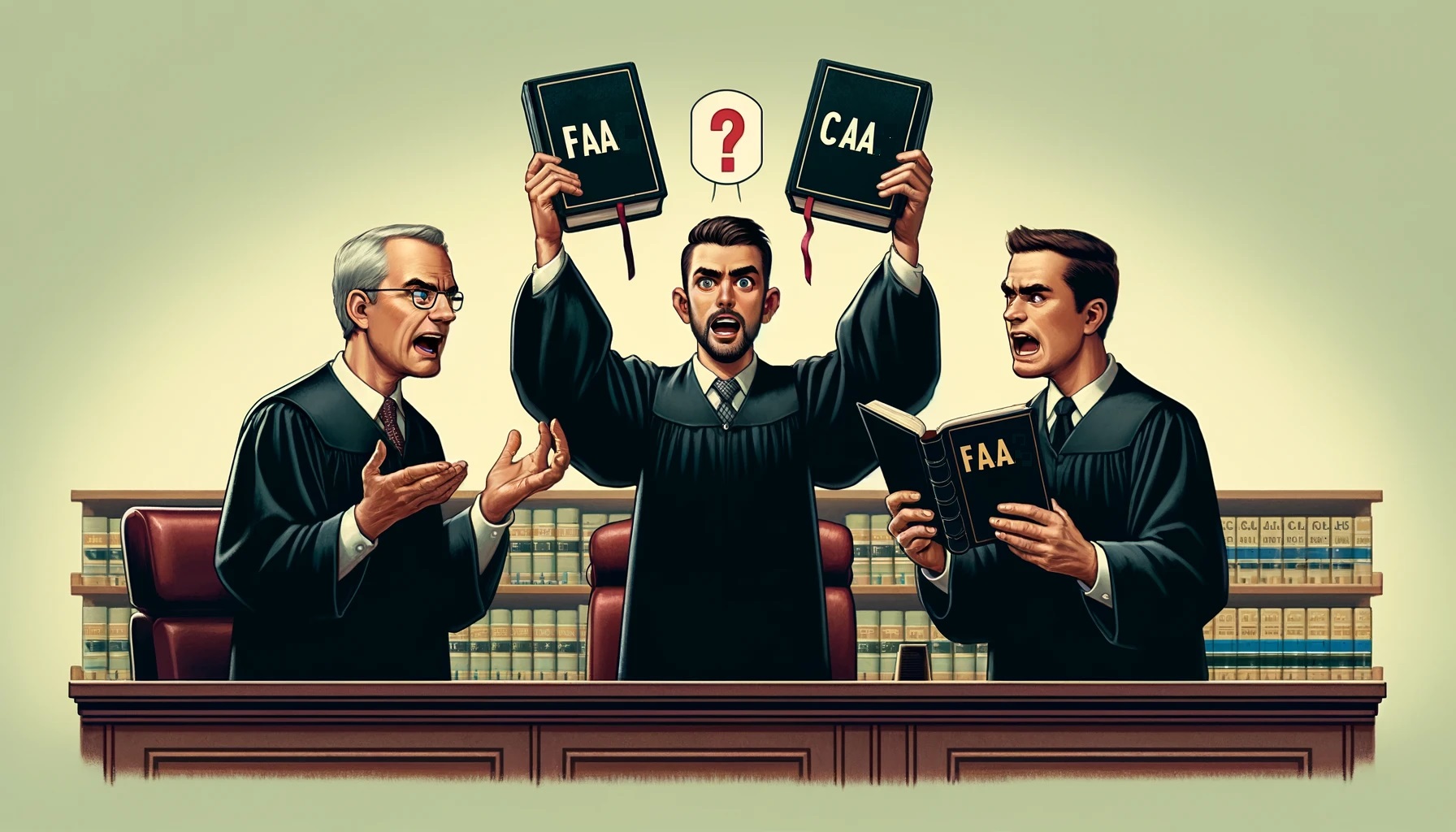
In a split opinion that “rather obviously invites a grant of review,” the Second District Court of Appeal in Hernandez v. Sohnen Enters. (D2d5 May 22, 2024 No. B323303) [cert. for pub.] held that, unless parties expressly invoke the California Arbitration Act, the Federal Arbitration Act preempts the CAA rule that deems any late fees to be a waiver of arbitration.
The majority explains that the FAA, enacted to “override judicial hostility” to arbitration, guarantees an “equal-treatment” principle so that agreements to arbitrate enjoy no “special status” but rather are “as enforceable as other contracts.” But the CAA, and specifically Code of Civil Procedure section 1281.97, creates a special waiver doctrine that applies only to arbitration agreements. Under section 1281.97, when an employer fails to pay arbitration fees within 30 days, the statute deems the employer to have materially breached and thus waived its contractual right to arbitration. That special legislative innovation of judicial doctrines of material breach and waiver are inconsistent with the “equal-treatment” principle under the FAA.
Here, the parties invoked the FAA, not the CAA, and so section 1281.97 was preempted by the FAA. The employer’s six-day delay in paying its JAMS fees could not be deemed a waiver of its right to arbitrate.
Dissenting, Justice Baker makes two points. First, he says that an order granting a motion to withdraw from arbitration is not an appealable order. This is a very good point. The right to appeal is strictly governed by statute, and no statute makes such an order appealable. But the majority simply could have treated the appeal as a writ and reached the same result.
But on preemption, Justice Baker’s objection to the “equal-treatment” principle has a tougher climb. He says that the Legislature can impose a “time is of the essence” policy upon obligations to timely pay arbitration fees. That seems right to me. And for Justice Baker, that seems to end the analysis: the obligation to pay arbitration fees, where time is of the essence, means that any delay is a material breach.
But is he right? Not necessarily, according to Magic Carpet Ride LLC v. Rugger Inv. Grp. (2019) 41 Cal.App.5th 357, which notes that “The traditional rule has been tempered so that including a time is of the essence provision in a contract does not always make untimely performance a breach.”
This leads to what is, to me, the most interesting point in the case. Justice Baker says: “The majority also appears to hint that the Legislature has somehow impermissibly invaded a judicial function to determine what constitutes "minor" or "inadvertent" delay.” This is the hint I took as well, and it strikes me as sound. But not Justice Baker, who says he is not aware of any authority suggesting such a limitation.
In this commentator’s view, the majority’s “hint” is correct that it is not for the Legislature to declare, categorically, what amounts to a “material breach” or “waiver” between contracting parties. These concepts are juridical in nature—based on weighing evidence and common-law principles—and may not be substituted by Platonic declaration.
What the Legislature may do, on the other hand, is impose penalties for tardiness. But here, the Legislature via section 1281.97 is saying that, when a party delays paying fees, that party intends—in reality; in actual fact—to leave the arbitral forum. That is what waiver means. That is not the Legislature’s province. Indeed, by this declaration the Legislature purports to declare what a contracting party intends, before the party has even formed the mental state. Clearly, this is absurd. The Legislature does not really mean it—it is using the term “waiver” in a way unknown to the law.
The Legislature may impose penalties. But it can’t just make things up—”waiver” is a finding of fact, and findings of fact are not made, as statutes are, in a vacuum. Fact findings are the court’s province. Not the Legislature’s.